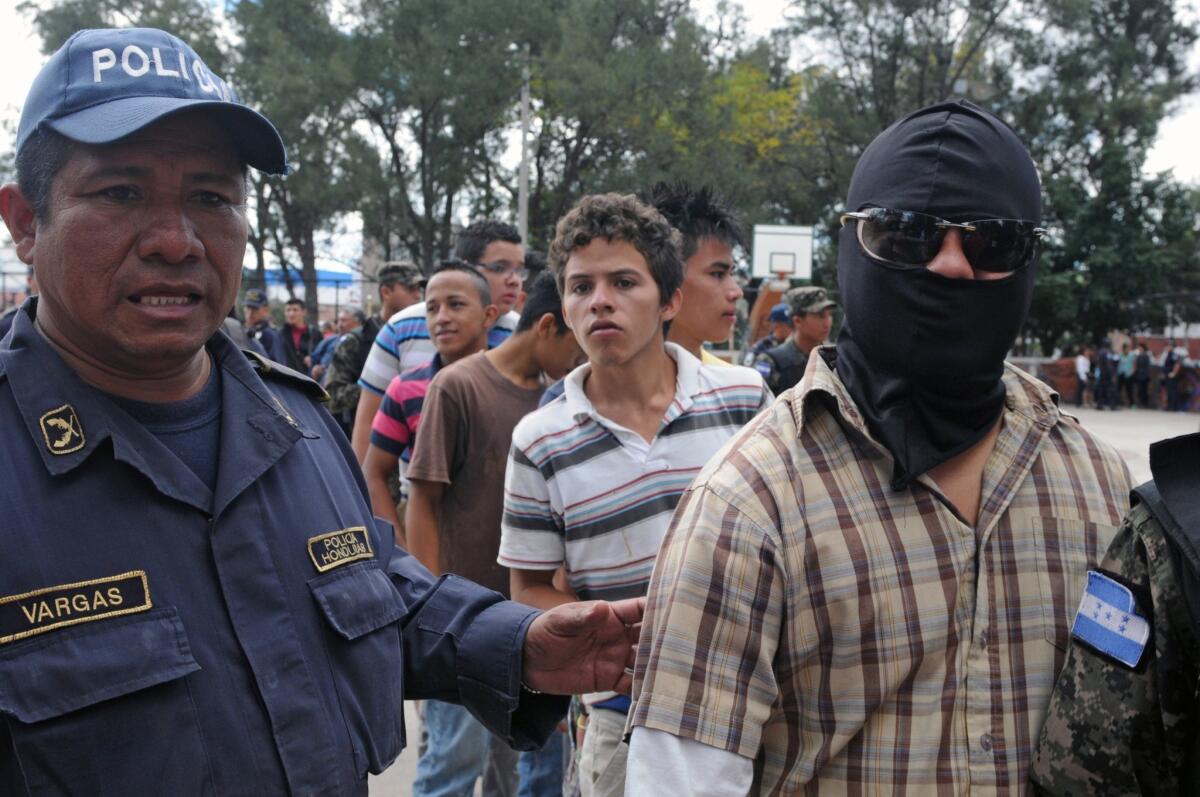Honduras fails to investigate land battle killings, report says

- Share via
MEXICO CITY -- Scores of people have been killed in brutal land battles in rural Honduras but authorities have failed -- or refused -- to investigate, possibly bowing to moneyed interests, a new report says.
The violence in the Bajo Aguan valley has come from many sources, including private security guards hired by huge landholders making millions of dollars from palm oil; government forces accused of abuses including arbitrary arrests and torture; and peasant groups, who contend their land has been stolen, according to the study.
The comprehensive report, released Wednesday by New York–based Human Rights Watch, echoed journalistic accounts and other studies describing killings and intimidation in one of the deadliest countries in the hemisphere. It delves especially deeply into the institutional failures to conduct even cursory investigations of many homicides, which in turn fuel impunity and more bloodshed.
Honduran police and prosecutors rarely visit crime scenes, order autopsies of victims, question key witnesses or suspects or inform victims’ families about the cases, the human rights group reported.
“Even in a country notorious for weak prosecutions and impunity, officials’ failure to make even minimal efforts to investigate crimes believed to be linked to land disputes in Bajo Aguan was striking,” Human Rights Watch said. “Distrust is particularly acute among peasant organizations in Bajo Aguan, whose members routinely expressed to Human Rights Watch the belief that government officials were at best incompetent, and at worst directly collaborating with private landholding firms.”
The report cites official Honduran government statistics that list 92 killings in the Bajo Aguan area since 2009, the year a military coup overthrew Honduras’ elected president. Most of the dead were peasant activists, but some security guards for the powerful business conglomerates that have taken over much of the land have also been killed.
The biggest company operating in the region is Dinant, a producer of palm oil and related food products. Its founder and president, Miguel Facusse, considered one of the wealthiest and most powerful men in Honduras, was the subject of a Los Angeles Times profile in 2012.
The World Bank’s private lending arm, the International Finance Corp., recently granted Dinant a $30-million loan. But in an unusual move, the bank’s independent ombudsman, in a report released last month, chided the lending agency for failing to adequately investigate allegations of abuse by Dinant personnel.
Dinant spokesman Roger Pineda, in correspondence with Human Rights Watch, said that the company’s security guards are given “proper training” on human rights and legal operations.
The new Honduran government of President Juan Orlando Hernandez, installed last month, did not immediately respond to the Human Rights Watch report.
Also Wednesday, the New York-based Physicians for Human Rights issued a report condemning what it said were 12 cases of “ill treatment and-or torture” in 2009, allegedly committed by interim-government officials attempting to suppress dissent after the coup that year. The group called for an independent criminal investigations unit that could prosecute perpetrators.
More to Read
Sign up for Essential California
The most important California stories and recommendations in your inbox every morning.
You may occasionally receive promotional content from the Los Angeles Times.













